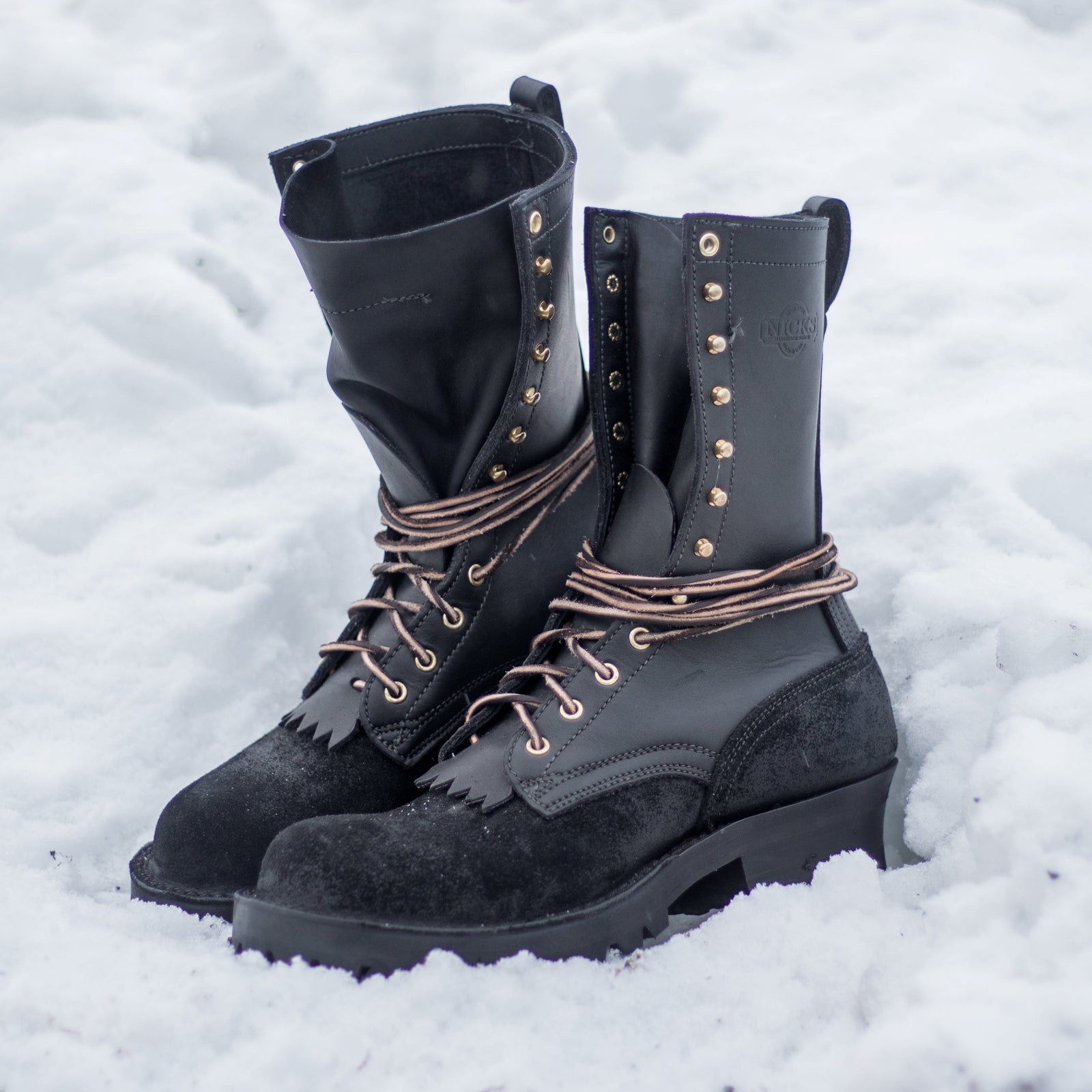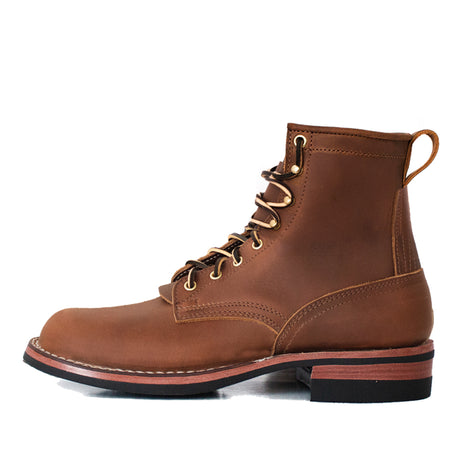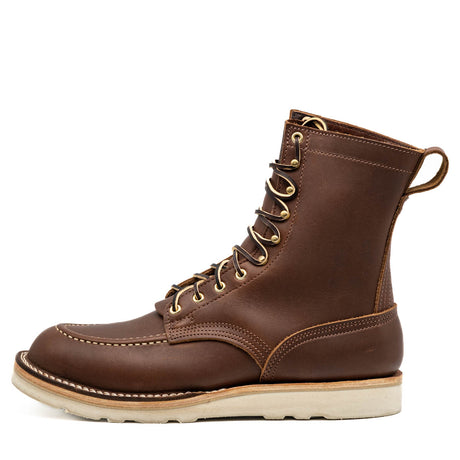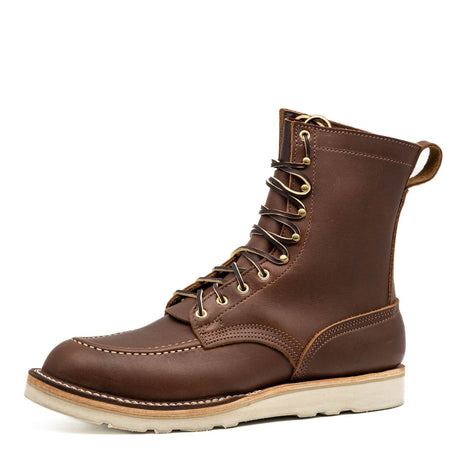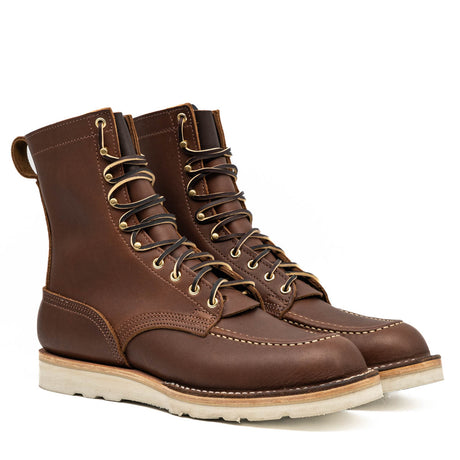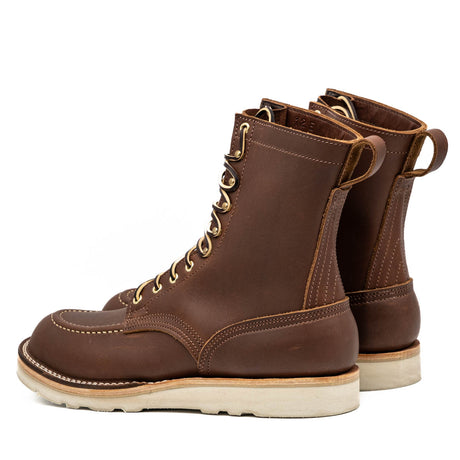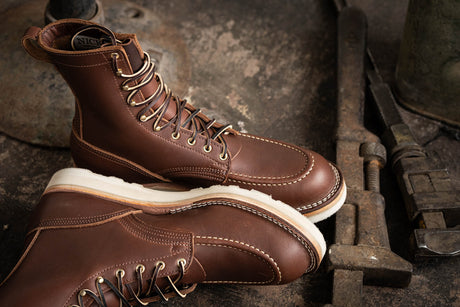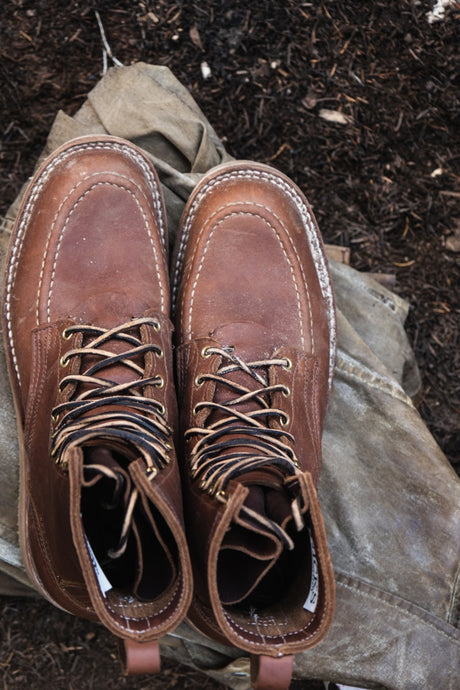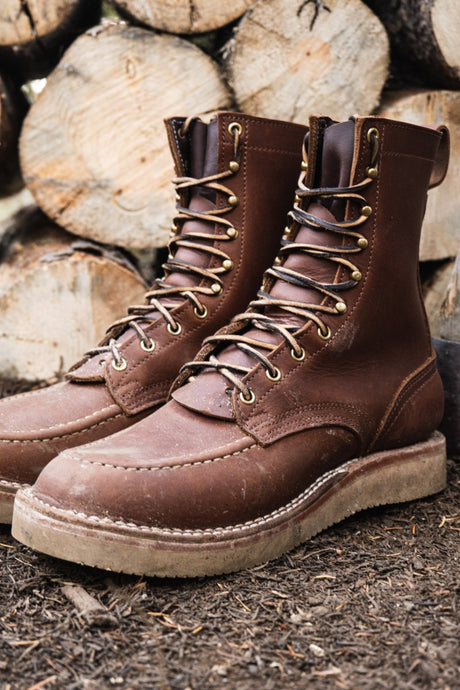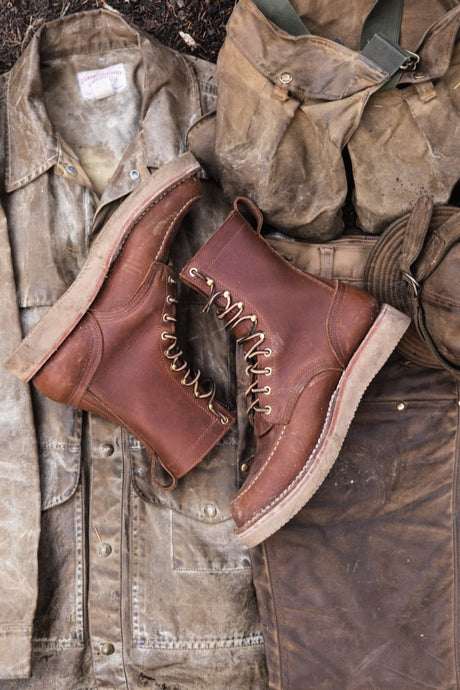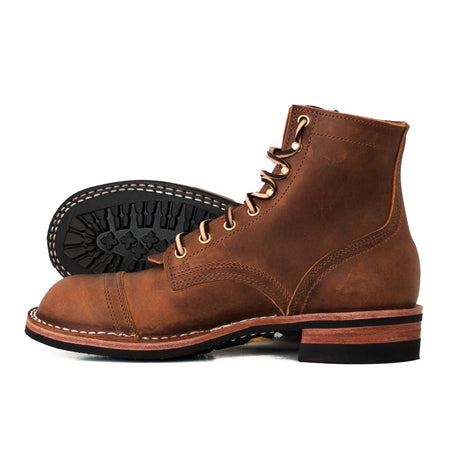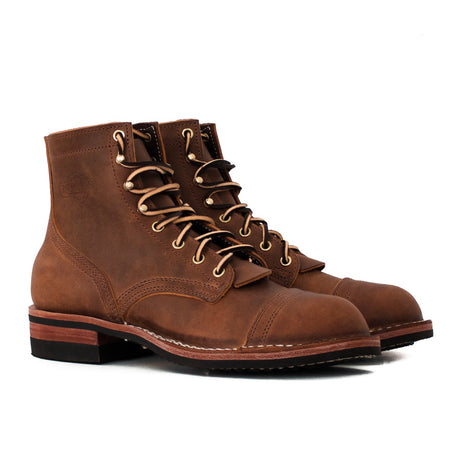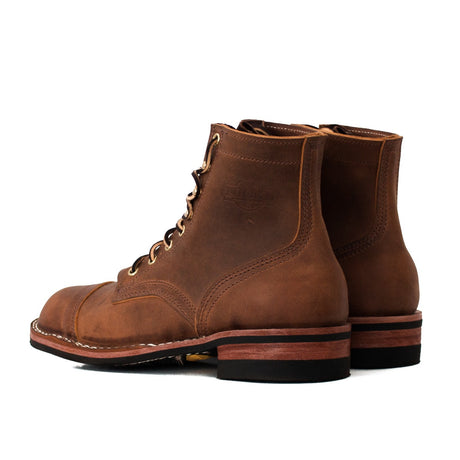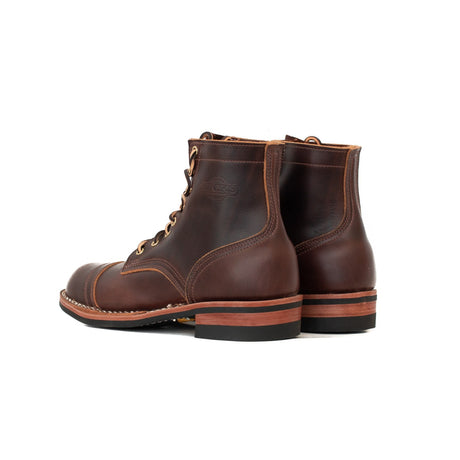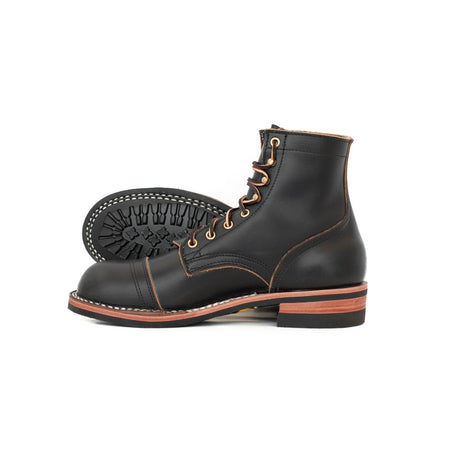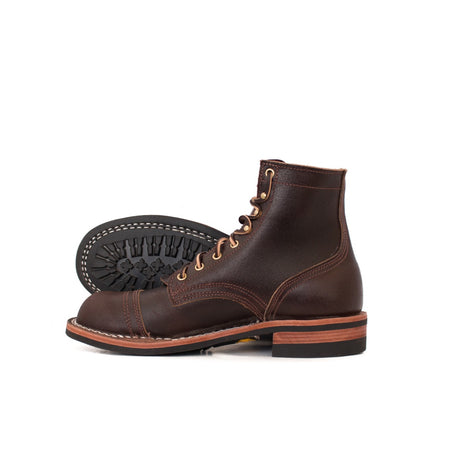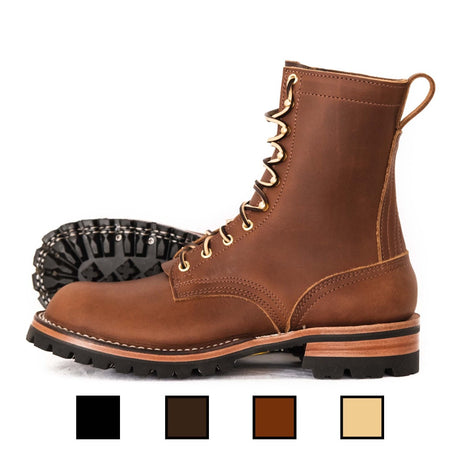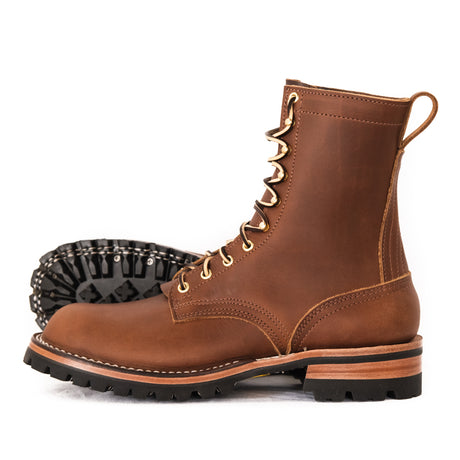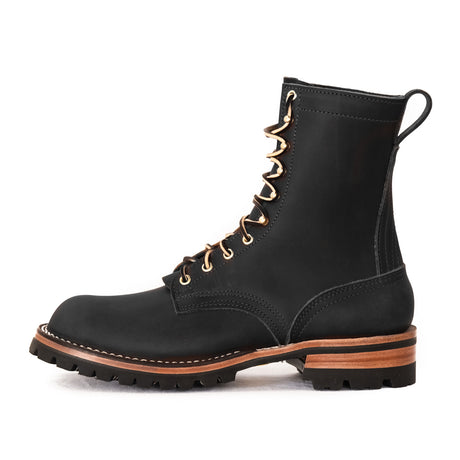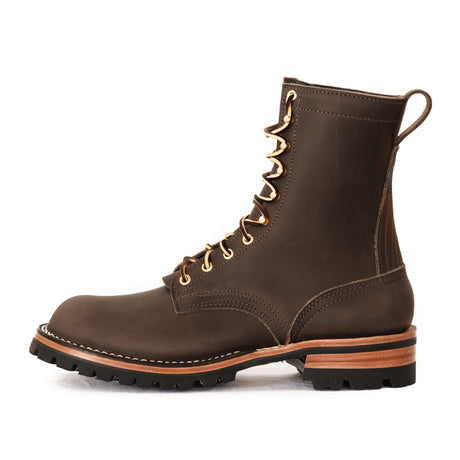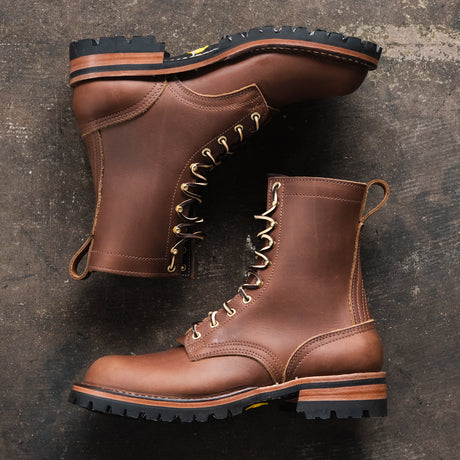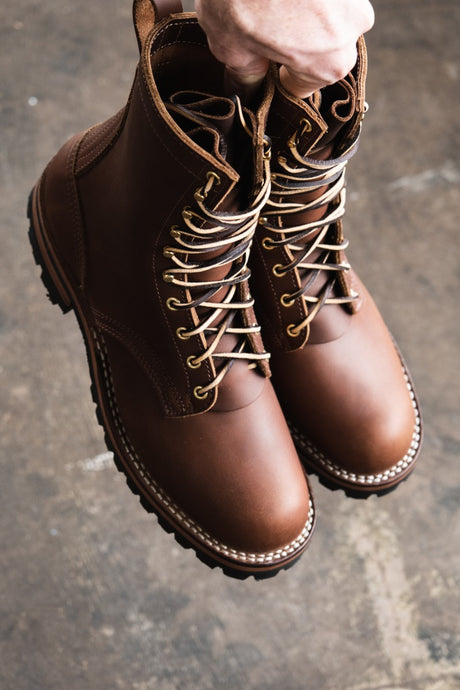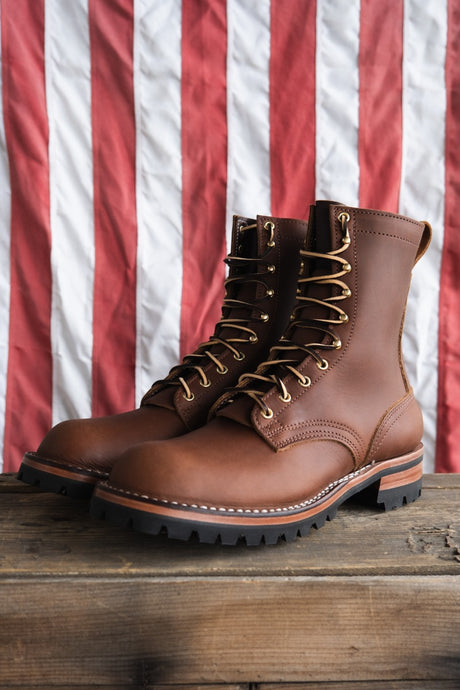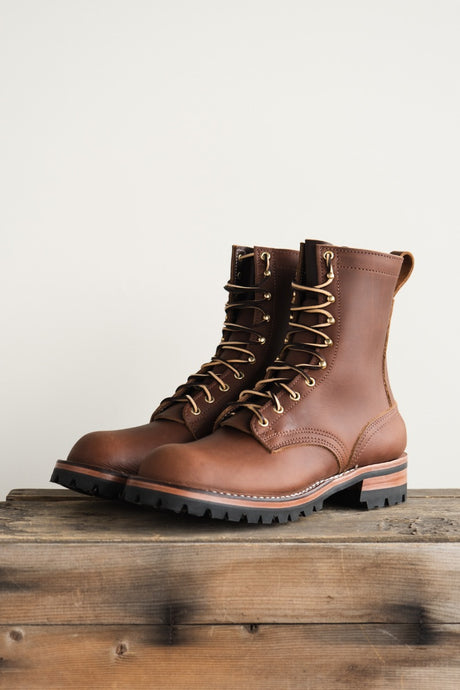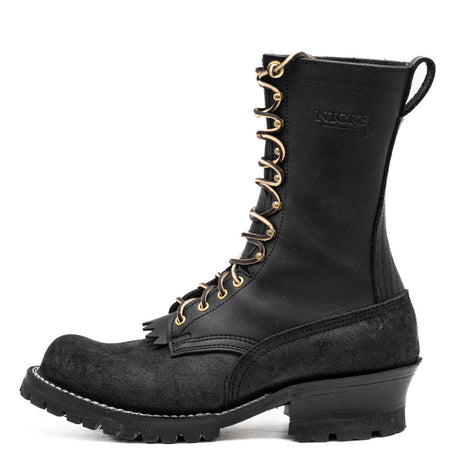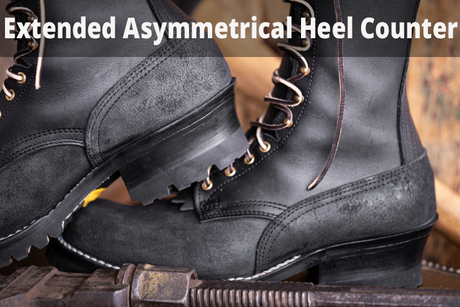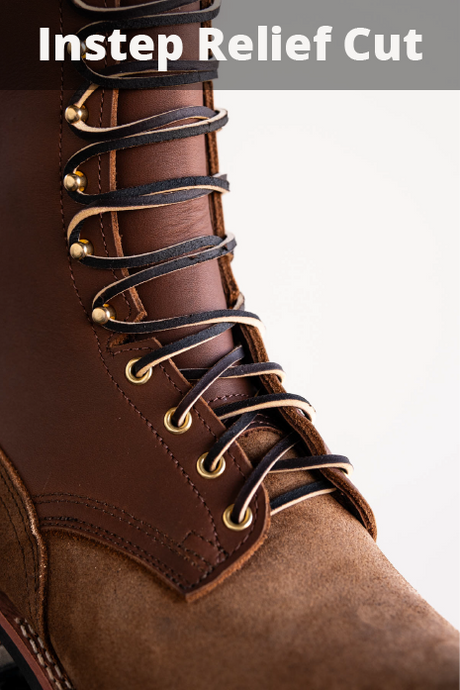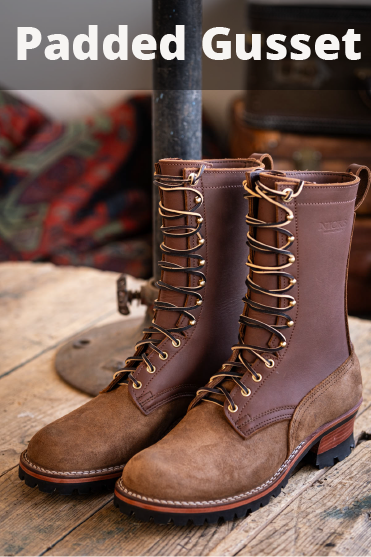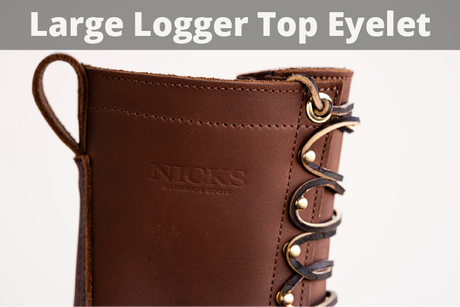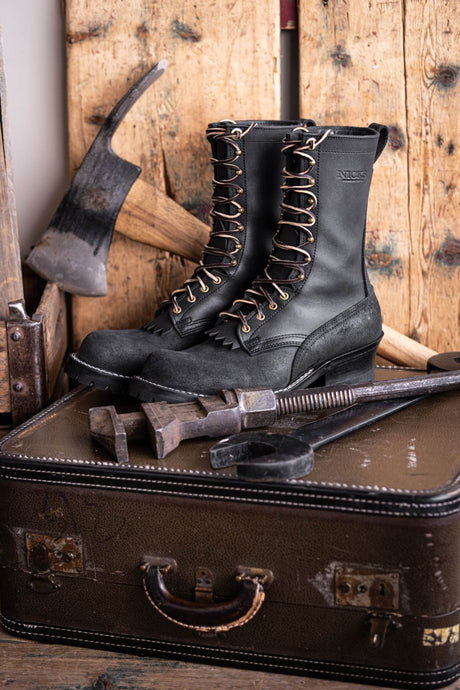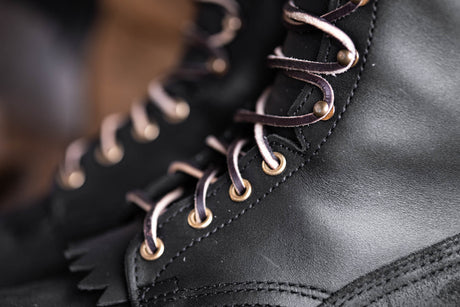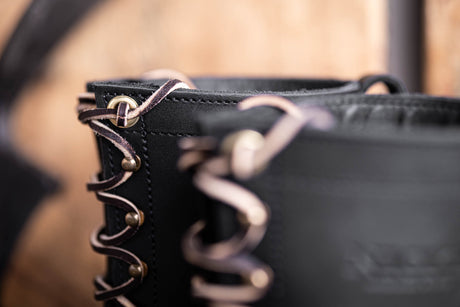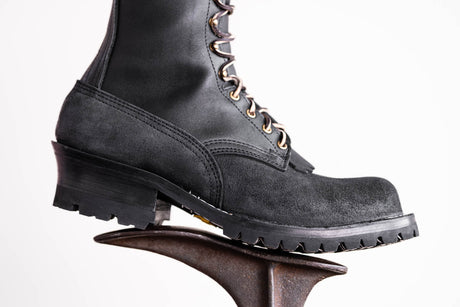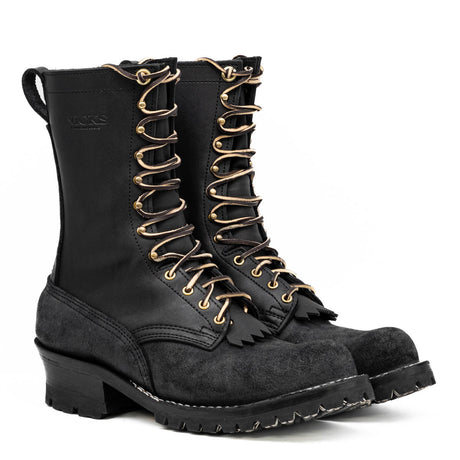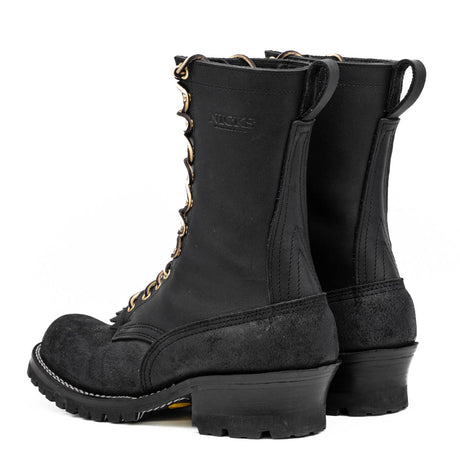Leather boots make fantastic winter boots. In fact, leather boots or other footwear are what people mostly wore during winter for most of human history! With that said, though, you have to take some care with them to get the best results.
It also depends on what you mean by "good for winter." Winter in the urban space and winter in the rural or wilderness space are totally different things. So is what you need your boots to be able to handle.
So are your heritage or work boots up for a bit of wet and cold?
Leather Boots Are Almost Ideal For Winter
The properties of leather make it an almost ideal choice for winter footwear, providing correct care by the user and the right design of the boot which we will get to.
What makes leather an ideal material is that it's breathable but insulating, meaning that leather retains heat but allows moisture vapor to escape while you're wearing them. They retain some heat, and your feet can breathe while you're wearing leather boots or shoes.
Insulation is great, but you can also double up on socks. A pair of liner socks and a pair of heavier outer socks will go a long way. You can also get a lot of protection by wearing a set of waterproof gaiters, meaning less of the boot is exposed to the elements.
Leather is also far less susceptible to getting waterlogged, less apt to soak compared to other organic textiles such as cotton or wool, because they soak up water like a sponge.
Rubber and synthetic textiles are also good choices, but rubber boots don't retain heat well (without insulation) and neither do synthetic textiles. Rubber isn't breathable, so sweaty feet in cold weather can easily turn into cold and wet feet in the right situation.
So, leather is actually an ideal material in a lot of regards...but there's a bit more to the story.
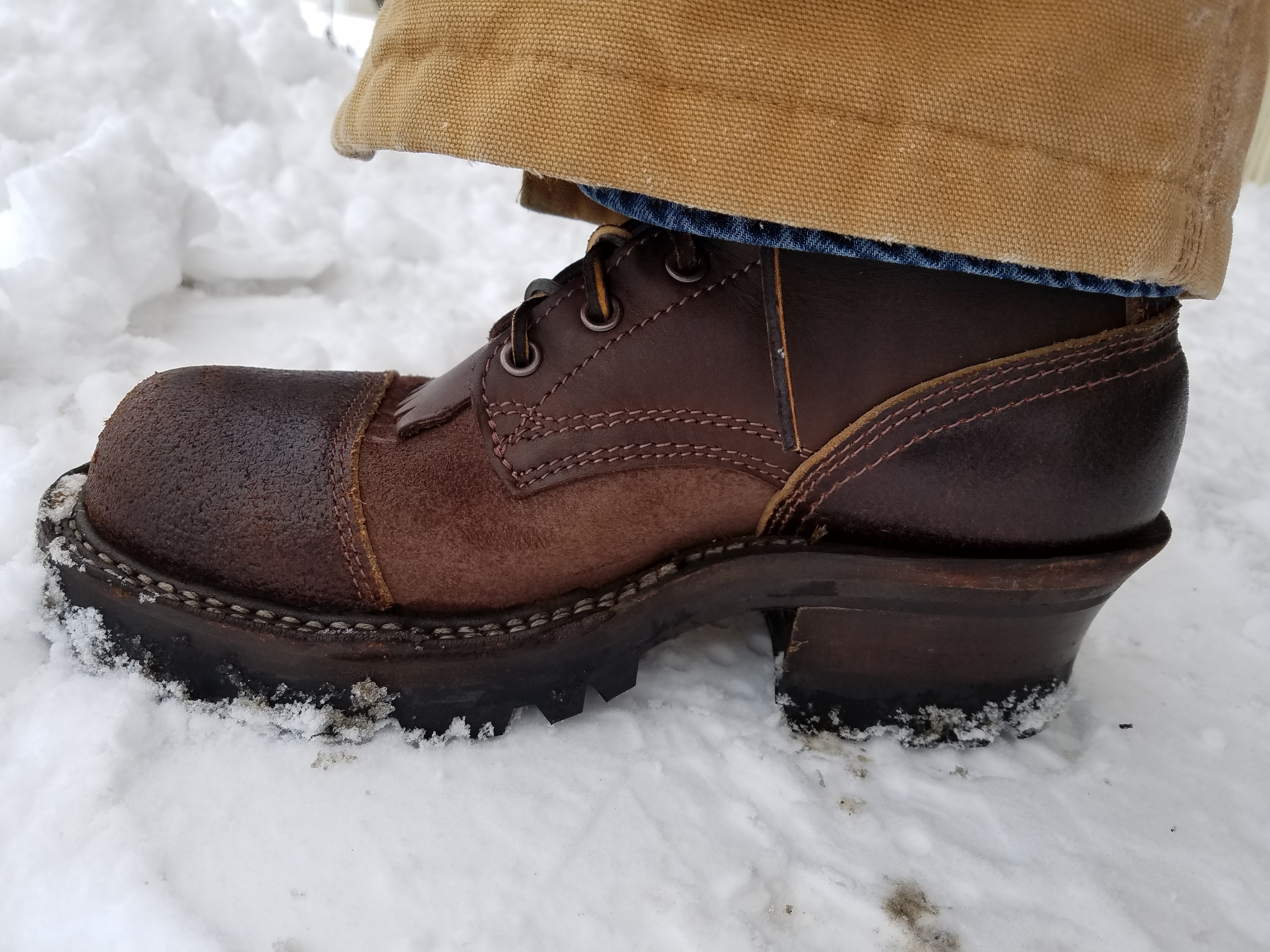
Leather Boots Must Be Waterproofed For Winter
Whether it's a pair of work boots or heritage boots that you're wearing, you have to get them ready for winter ahead of time. Luckily, that's easily done and not mysterious as to how it gets done.
To winterize leather, you need to give it a coating that's impervious or at least not very accommodating to water. Exactly what kind you want to use depends on the type of leather that your boots are made of.
Waterproofing treatments are some sort of wax or grease. Examples include dubbin (wax-based) the popular SnoSeal product (very similar to dubbin) and the various boot greases on the market like Obenauf's or Huberd's.
What the coating does for the leather is to create (literally) a fatty barrier, kind of like coating a cast iron pan with oil after cooking. The wax or grease coating coats the surface of the leather, and prevents water from getting between the fibers and soaking the leather.
What treatment you use depends on the leather you have.
Dubbin is great for Chromexcel, if not just straight beeswax. The exact formula is a Horween trade secret, but it's known that beeswax is part of their hot-oil stuffing mixture. Vegetable-tanned and pull-up leathers can be treated with most oils and boot greases such as Obenauf's.
With quality leather, always use natural waterproofing for best results. Synthetic waterproofing sprays and compounds can clog the pores of the leather. Oil-stuffed leathers may require more frequent treatment, so you may need to clean your boots and apply a light coat every few weeks or so.
Once you have waterproofing applied, you can expect a few weeks to a few months of protection. It depends on your leather and how quickly the product in question breaks down.
Keep Your Boots Clean For Best Results
A top tip for winter is to clean your boots just before the wet seasons starts and waterproof them. With the dirt, salt and rock particles in groundwater and any de-icer if you're in an area that people use it frequently in, you'll want to clean your boots a little more regularly.
If your area generally has dry or moderate winters, you won't have to worry about this as much.
The product to use is saddle soap. Get a good lather going, brush down the outside of your boots, and wipe the suds off. After letting them dry for an hour or two, apply a light coat of your waterproofing treatment.
Cleaning and adding a little oil or grease every few weeks will ensure nothing harms the leather, and your boots stay waterproof throughout the winter seasons. Leather boots make excellent winter boots, provided they've been properly treated and conditioned.
Your feet can stay warm, dry...and you'll look better doing it.



